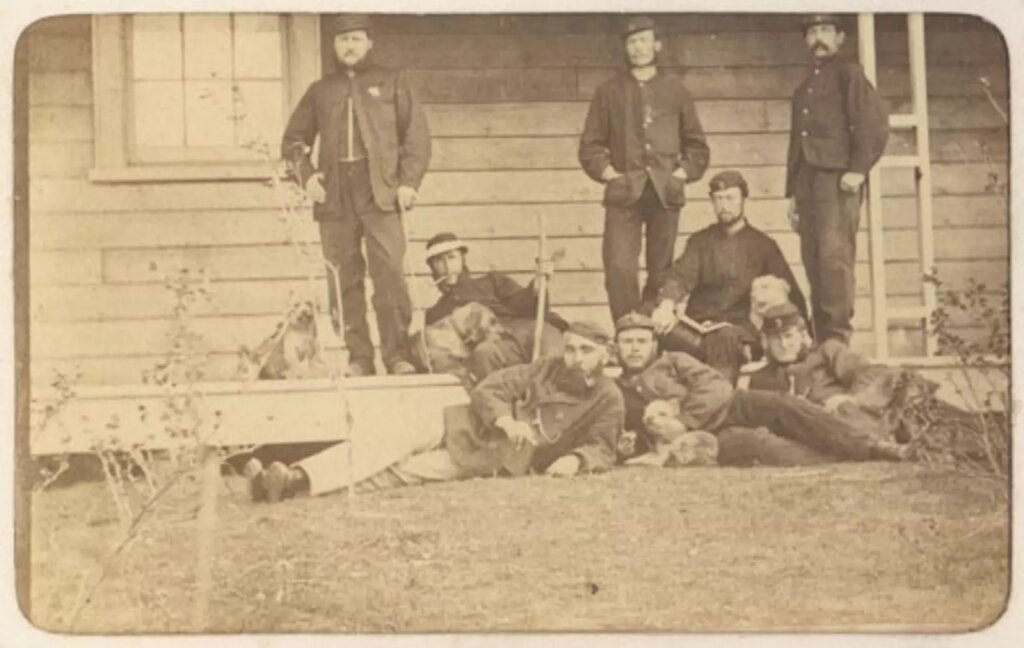
Soldiers of the Third Waikato regiment 1864
Anna Bukowsky was a spritely 69-year-old, up early on an April morning in 1906. As the day began at the family farm at Ōhaupō her son left for the creamery and Anna told daughter, Bertha, 26, that she would get some onions and carrots from the garden. After collecting the vegetables, she took them to the well near the house to wash them.
Half an hour later Bertha realised her mother had not returned and went in search of her. A bucket was at the side of the well with some washed vegetables in it. Bertha then discovered her mother in the well. Anna was taken out of the well which was about 20ft deep with 10ft of water in it, but it was too late. At the inquest a verdict of accidental death was returned by the jury. It was assumed Anna had been seized with a fit of dizziness, which caused her to fall down the well.
The Bukowskys were among the earliest settlers in the Ōhaupō district, Anna and her husband Julius having resided there since 1865. Julius, born in East Prussia, had gone to Australia to try his luck on the Ballarat goldfields. He married 20-year-old Johanna Lau at the German church, Melbourne in 1856 when he was in his early thirties. Julius was successful on the goldfields but found Australia too dry for farming.
The couple came to New Zealand in 1863, a year in which recruitment for the militia was taking place. Immigrants were arriving in large numbers wanting land which Māori were resistant to selling and ultimately war was declared. Julius joined the 3rd Waikato Regiment and he and Anna were among the first Europeans to come to the Cambridge area.
In 1867 the Waikato Militia was disbanded, and Julius was given a grant of 50 acres in Ōhaupō as well as one acre in Cambridge West. Julius and Anna began dairy farming in Ōhaupō and in October 1881 Julius was naturalised. The couple would go on to have a large family which brought with it typical joys and troubles.
Their daughter Edith suffered from rheumatism and her treatment at Waikato Hospital was an ongoing financial burden. Over the years the fees were remitted by the hospital board who found Edith to be one of the most deserving cases to come before them. Remedies were not successful and at one stage the hospital board agreed to send her to the Rotorua sanatorium if her friends contributed towards the cost. By 1897 the family had had a run of misfortune which included stock losses from disease and crop destruction by fire, as well as every member of the family needing long term medical treatment.
Despite these challenges Anna was always ready to help a neighbour in time of difficulty or sickness and she would be greatly missed. She was buried at Ōhaupō cemetery, her coffin covered with wreaths and floral tokens.
Astonishingly, six years later, Anna’s daughter Bertha, now aged 32, fell down the same well and was drowned. At the inquest her brother testified that he was at a sale, and when he returned, his father Julius, who was now blind, told him that Bertha was missing. How she got in the well was a mystery. Bertha was in her usual spirits in that day and was to have been married the next month. She was buried with her mother.









